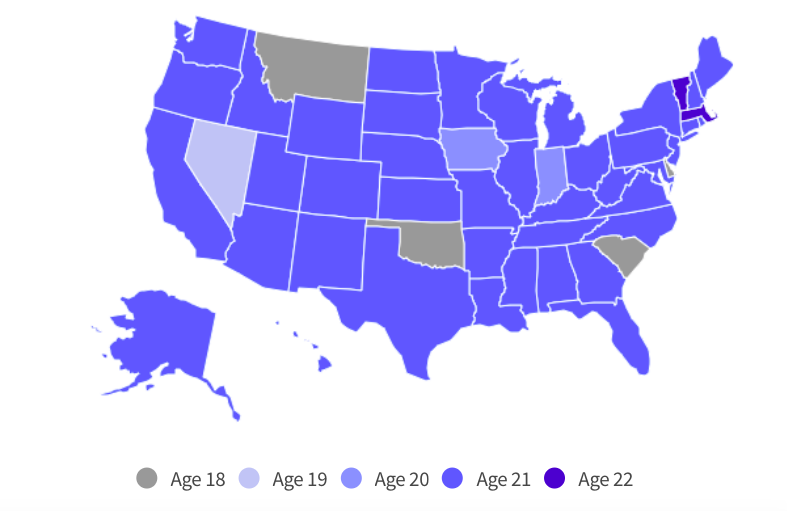
By: Gary GuthrieAs Seen in Consumer Affairs on 03/28/2023
Nearly 80% of young adults get their financial advice from guess who?
Guess where most young adults get their financial advice. Is it their parents? Nope. Not a teacher or professor either, and definitely not someone at a bank or an investment company.
It’s the savants of all financial wisdom – the ones on social media!
Warren Buffett would probably have a cow if he knew this, but a new eye-opening report from Forbes Advisor claims that the number of young Americans who lean on Reddit, YouTube, and, uh, TikTok is close to 80% – trusting those platforms for advice about investing in stocks and bonds and other financial matters.
The results, so far are mixed, though. Half of those say they have made money as a direct result of financial advice they received on social media – which means the other half didn’t make a dime.
Unfortunately, only 31% of the respondents said they check the experience and qualifications of people who supply financial advice on social media – and that is a big-time problem they might not even be aware of.
“People should be wary of the financial advice that is given on the internet. It is important to know that a licensed financial advisor would lose their license for giving advice to the masses,” Jenna Biancavilla, a financial expert at financial service firm Pearl Capital Management, told ConsumerAffairs.
“Anyone who gives financial advice, for a fee, must be licensed, and therefore can only give customer-tailored advice according to regulations. Stated differently, a person giving advice on the internet is not successful enough to be getting paid for their advice. Is this really the person you want to trust?”
Young adults who don’t have children need a different kind of advice
One question that another financial expert raised is if any member of the millennial and Gen Z generations who interacts with a “financial adviser” on social media tells them if they have children or not. And that makes a difference in the founder of Childfree Wealth, Jay Zigmont’s mind.
In comments to ConsumerAffairs, Zigmont said that most financial advice assumes a person does, or will have children, or about 20% of the population.
“Advice that works for parents may not work as well for people who don’t have kids and aren’t planning on having kids,” he suggested.
Don’t be afraid to pump the brakes
Biancavilla says that just like lots of other OMG-worthy pitches on the web, there are also self-serving salespeople who could care less about a client’s wealth building.
“Just think of all the people selling you a multi-level marketing product in your direct messages. Well, financial salespeople can be just as bad, if not worse. Take caution on any internet-based financial advice just as you would take caution when someone tries to sell you the next best diet shake, both are potentially soaked in high commissions for over-priced, less-than-effective, products,” she said.
Young children and teens can still be helped
Shyam Pradheep, general manager at Zogo, dittoed his peers in their feeling that while social media can have a wider reach than traditional education, its reputability is often questionable.
“Especially for those without baseline financial literacy, it can be difficult to verify truthful claims and avoid misinformation,” he said.
So when should parents start incubating financial literacy in their kids? With school-aged children, that’s where.
“Parents of young children and teens can teach their children that small actions today can create the opportunity for them to live a richer life tomorrow,” John Rosenfeld, president of Jenius Bank, said.
“They can instill savings habits from a young age by suggesting they save $5 from each allowance, or by helping them set up a separate savings account where a meaningful percentage of each paycheck can be automatically deposited when they land their first job. Being transparent about budgets or financial goals in their households can help children build smart financial habits.”
SvvyTM 2023 The views and opinions expressed are those of the authors. They are meant for general informational purposes only and should not be construed or interpreted as a recommendation or solicitation. SvvyTM does not provide investment, tax, legal, financial planning, estate planning, or any other personal finance advice. SvvyTM holds no liability for the accuracy or timeliness of the information provided.
Recommended Reading

What Should Be Included in an Estate Plan?
Creating an estate plan is an important step in ensuring…
Read more
The Art of Hiring: When to Start and How to Begin
If you don't know where to find the first member…
Read more
How to Pay for a Home Renovation
Home renovations can be exciting, but paying for them requires…
Read more
Financial Empowerment for Youth Who Age Out of Foster Care
When youths get close to aging out of foster care,…
Read more
7 Financial Advisors and Experts Share Their Best Money Tips
Without a global pandemic and economic recession, financial planning is…
Read more
Nearly 80% of young adults get their financial advice from guess who?
Guess where most young adults get their financial advice. Is…
Read moreGet Started Now
Start with Svvy today and take the first step towards achieving your financial goals
Find My Expert